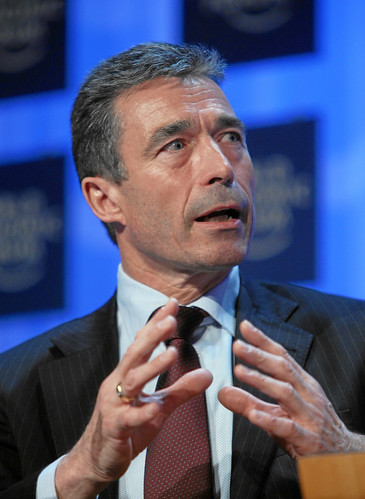 Back a quarter century ago, in what today seems a never-never land, during the depths of the time when Communists were running Russia, the KGB was still shipping dissidents to Siberia, when American journalists, including this commentator were playing footsie with the mili-men (really KGB in gray great-coats) who stood guard at the entry to the foreign ghetto at Sadovo Samotechnaya where many of the world’s journalists were penned, Stephen Cohen had already passed through the looking glass and was building his vast network of sources that today enables him to understand what has gone right and oh so wrong in Russia—and especially our perceptions of it.
Back a quarter century ago, in what today seems a never-never land, during the depths of the time when Communists were running Russia, the KGB was still shipping dissidents to Siberia, when American journalists, including this commentator were playing footsie with the mili-men (really KGB in gray great-coats) who stood guard at the entry to the foreign ghetto at Sadovo Samotechnaya where many of the world’s journalists were penned, Stephen Cohen had already passed through the looking glass and was building his vast network of sources that today enables him to understand what has gone right and oh so wrong in Russia—and especially our perceptions of it.
We should all be gratified today for his diligence, plumbing these sources and delivering, finally, this compelling, cautionary tale of good intentions gone so terribly awry—Soviet Fates and Lost Alternatives: From Stalinism to the New Cold War, (Columbia University Press: New York, 2009). For, as this brilliant Princeton and New York University professor so meticulously chronicles, we have indeed gone off the rails in our dealing with the realities of today’s Russia, taking us once again to the brink. As we stare into the abyss that over the past two decades we thought we would never again confront, Cohen leads us through the tortuous steps that have taken the world’s two superpowers from the age of Stalin and Bukharin to that of Putin and the oligarchs.
Organized by eras, but effectively as a succession of myths and consequences, Cohen leads us vividly through the reign of Stalin and the political show trials he so carefully orchestrated with Nikolai Bukharin as the centerpiece (Cohen and his wife, Katrina vanden Heuvel, editor of The Nation, became close friends of the widow and descendants of the family of this quintessential Marxist theoretician, Bolshevik revolutionary, and Soviet politico). Then it’s on to the vast dark decades from Khrushchev through Gorbachev, via Brezhnev, Andropov and Chernenko to the chaos of Boris Yeltsin and the arrival of the archetypical post-communist apparatchik, Vladimir Putin.
Cohen’s own career has been embroiled in tracking much of this period. Born, as he points out, the year Bukharin was executed for having posed too clear an intellectual and political challenge to Stalin, “decades later [Cohen] developed a friendship with his widow…and other Gulag survivors.” And he concedes, “I have had friendly relations with Gorbachev for more than twenty years”; there is even an opinion (though not mine) that Cohen’s biography of Bukharin “once influenced him in a significant way.” During his years as director of Russian studies at Princeton, Cohen was a frequent companion of George Kennan at the Institute for Advanced Studies. More than three decades earlier, Kennan had authored the famed 5,300-word “long telegram,” followed by the pseudonymous X article, publicly elaborating on “the traditional and instinctive Russian sense of insecurity,” which, after the Russian Revolution, “became mixed with communist ideology and “Oriental secretiveness and conspiracy.”
Cohen’s contention is that America’s failures in the post-communist era spring from a failure of comprehension as profound as the failure that impelled Kennan to write his classified long telegram, and then go public with it. The difference, of course, is that Kennan’s writings led to the Truman Doctrine and the entire concept of containment—“that it must be the policy of the United States to support free peoples who are resisting attempted subjugation by armed minorities or by outside pressures.”
Today, alas, Cohen’s warnings are being largely ignored. He is not being summoned by congressional committees, as was Kennan. His alarms are not being heeded. Yet the bottom line of what Cohen so adeptly chronicles is that Russia, and particularly the Russian psyche, have changed little in the post-Kennan decades, and for the purposes of our story here, in the post-communist decades as well.
In the course of this work, Cohen explodes a succession of myths— effectively cautionary tales: the end of the Soviet Union was “inevitable,” or as he puts it “doomed by some irremediable genetic or inherent defect”; the Soviet system, undermined by an unworkable economy, fell victim to a popular anti-communist revolution from below; perestroika’s gradualism succumbed to a long Russian tradition of extremism; and finally that the Soviet breakup was an “elite-driven” consequence of excesses of the nomenklatura in the 1980s and early 1990s.
The result of the failure to understand these myths has led to a near-catastrophic lapse in dealing with today’s Russia and its people, not to mention its leaders. And this is due largely to a succession of American policies based on denials.
First, there is the consummate denial “that a new cold war [is] even possible.” Second, and even more fundamental, there is the widespread belief, originating in Washington and encouraged among the broader American body politic, that as President George W. Bush observed, “America won the Cold War,” which deserves to stand in the pantheon of such declarations alongside “Mission Accomplished.” In the case of the Cold War victory, by contrast, only a small number of voices have been raised in protest—among them, Kennan himself who, shortly before his death in 2005, observed that such a “victory is intrinsically silly and simply childish.”
 After celebrating four decades in power last month, Colonel Muammar al-Gaddafi visited the United Nations (and the United States) for the first time and addressed the UN General Assembly today. He spoke after President Barack Obama, which symbolically, if not actually, created an uncomfortable encounter.
After celebrating four decades in power last month, Colonel Muammar al-Gaddafi visited the United Nations (and the United States) for the first time and addressed the UN General Assembly today. He spoke after President Barack Obama, which symbolically, if not actually, created an uncomfortable encounter.











